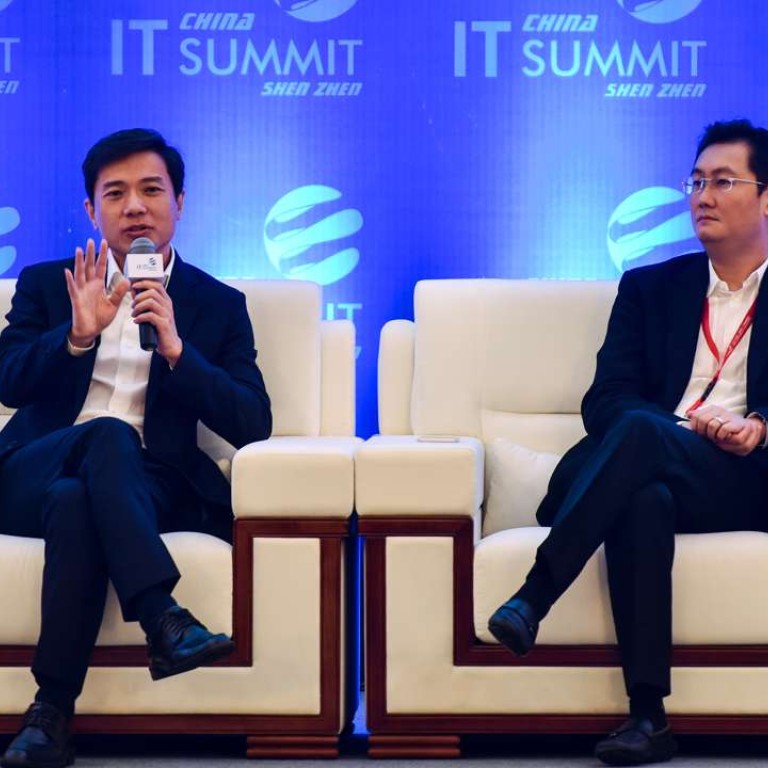
China’s internet giants throw weight behind sharing economy after endorsement by Beijing
China’s top internet players will embrace sharing-economy projects to push this model further into the mainstream and boost China’s economic and technological development, they said at a forum in Shenzhen, Guangdong province over the Easter break.
The country’s information technology industry saw revenue fall 0.6 per cent to 15.4 trillion yuan (US$2.37 trillion) last year, according to a report issued by the Federation of Digital China IT at the two-day China IT Summit on Sunday.
Despite the small slide, Chinese authorities remain confident in the sector, a key part to their plans to restructure China’s economy and manufacturing.
“The State Council introduced a series of strategic polices last year to intensify the IT industry’s pivotal role in the national economy,” Huai Jinpeng, vice minister of industry and information technology said at the summit.
Developing next-generation IT products is a top priority of China’s “Made in China 2025” national plan, and also the key to achieving “intelligent manufacturing” in China, he added.
Huai said Chinese internet companies have been playing a decisive role in the global market as four of the world’s 10 largest players by market value in this field now hail from the country.
They are e-commerce giant Alibaba Group, social and gaming titan Tencent Holdings, search engine Baidu and JD.com, another major e-commerce platform in China.
Yang Yuanqing, chairman of China’s top PC maker Lenovo, said the sharing economy is inseparable from the development of IT technology.
“Without the progress of IT technology, there would be no Uber, Didi Chuxing or Airbnb. Today is just a start for the sharing economy,” he said, referring to two of the world’s biggest car-hailing app operators and the well-known lodging rental website.
Yang said he is thinking of turning Lenovo into a global sharing platform procurement and marketing.
“You [start-ups in this sector] can make use of Lenovo’s labs and channels, and focus on developing your new and good products,” Yang said.
Robin Li, the founding chairman of Chinese search engine giant Baidu, said he would like to share the firm’s development in artificial intelligence.
“We share, so we can research further together. Sharing is good for technology development. We should share not only data but also technology,” Li said.
Pony Ma, chairman of internet giant Tencent, said sharing is becoming a dominant trend in the sector.
“If we don’t share, we would lose our competitiveness,” he said. “So now we’re thinking about how to strike a balance. It’s fine to share statistics-type big data. But we can’t share all data related to our users’ privacy.”
Jia Yueting, the founder of Leishi, China’s leading online video provider, warned about the growing power of China’s internet giants, which he said claim the lion’s share of opportunities for innovation in the China’s IT sector.
“With three big mountains like BAT [Baidu, Alibaba and Tencent], countless start-ups never see any light to grow,” Jia said.
Baidu, dubbed “China’s Google”, holds commanding share of China’s online search market. Alibaba holds a similar sway over its e-commerce market, while Tencent is the dominant player in social media.
“Usually, there are only three choices for start-ups: making products that can be copied by BAT, merging with BAT, or selling shares to BAT,” Jia said.
Li and Ma chose not to respond to this comment at the summit.
The China IT Summit has been held in Shenzhen every year since 2009. This year, it focused on trending topics in the IT industry like artificial intelligence, internet finance and the sharing economy. Over 80 investors and leading IT entrepreneurs in China attended.

